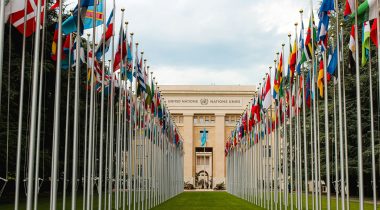
Nick Shaxson ■ US multinationals’ offshore cash piles grow $206bn

From Bloomberg:
“The largest U.S.-based companies added $206 billion to their stockpiles of offshore profits last year, parking earnings in low-tax countries until Congress gives them a reason not to.
The multinational companies have accumulated $1.95 trillion outside the U.S., up 11.8 percent from a year earlier, according to securities filings from 307 corporations reviewed by Bloomberg News.”
Most of it is in jurisdictions that aren’t meaningfully taxing it. The euphemism is that the tax on these income piles is ‘deferred’ to some unspecified future date – but the reality is that much of it won’t ever get taxed: either it will just sit there indefinitely, or they will find devious ways to bring the money home through loopholes or a tax amnesty, and avoid triggering tax.
That money is sitting there, not being invested. There isn’t the demand for investment to respond to: consumers aren’t feeling particularly wealthy.
But there is a good way to increase demand. Tax those cash piles, and spend the proceeds.
It’s an unambiguous http://premier-pharmacy.com/product-category/anti-anxiety/ win-win for everyone except for the (mostly wealthy) owners of that corporate stock: with those rising piles of money sitting idle offshore, corporations aren’t investing it – so taxing them won’t make much difference to (genuine) investment. But government spending and investment – you know, to upgrade roads, improve schools and universities, and so on – will improve productivity and demand at the same time.
More on the cash piles, here.
Strangely, a U.S. Treasury document has just published a document which it claims is “a detailed set of business proposals that close loopholes and provide incentives for growth”.
Citizens for Tax Justice explains, via e-mail:
“What they actually mean is that the President, for some reason, has decided that the corporate tax rate should be dramatically lowered and he has come up with loophole-closing proposals that would offset about a fourth of the costs, so Congress is on its own to come up with the rest of the money.”
Read the CTJ report here.
Related articles

The elephant in the room of business & human rights
The elephant in the room of business & human rights
UN submission: Tax justice and the financing of children’s right to education
14 July 2025

How the UN Model Tax Treaty shapes the UN Tax Convention behind the scenes
The 2025 update of the UN Model Tax Convention
9 July 2025
One-page policy briefs: ABC policy reforms and human rights in the UN tax convention

Bad Medicine: A Clear Prescription = tax transparency
Tax justice pays dividends – fair corporate taxation grows jobs, shrinks inequality

Reclaiming tax sovereignty to transform global climate finance
Reclaiming tax sovereignty to transform global climate finance
16 June 2025

